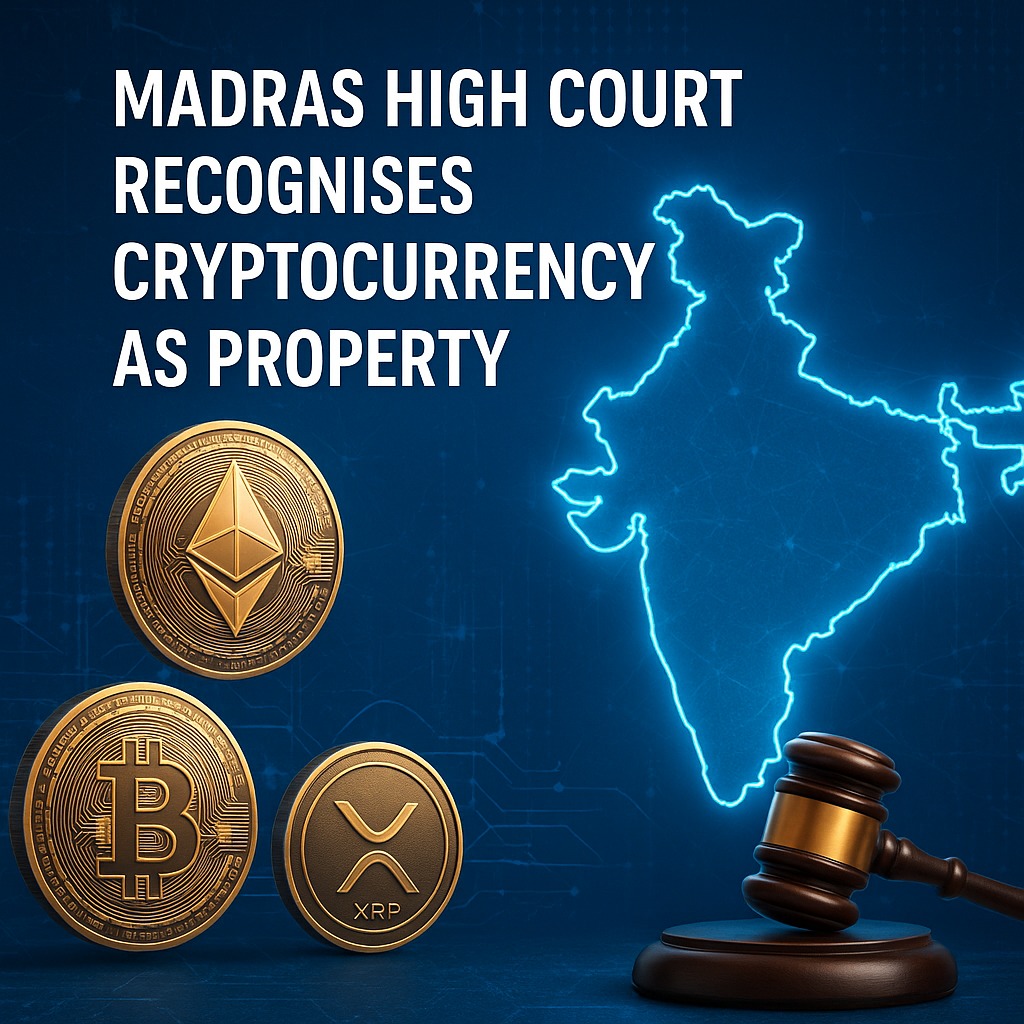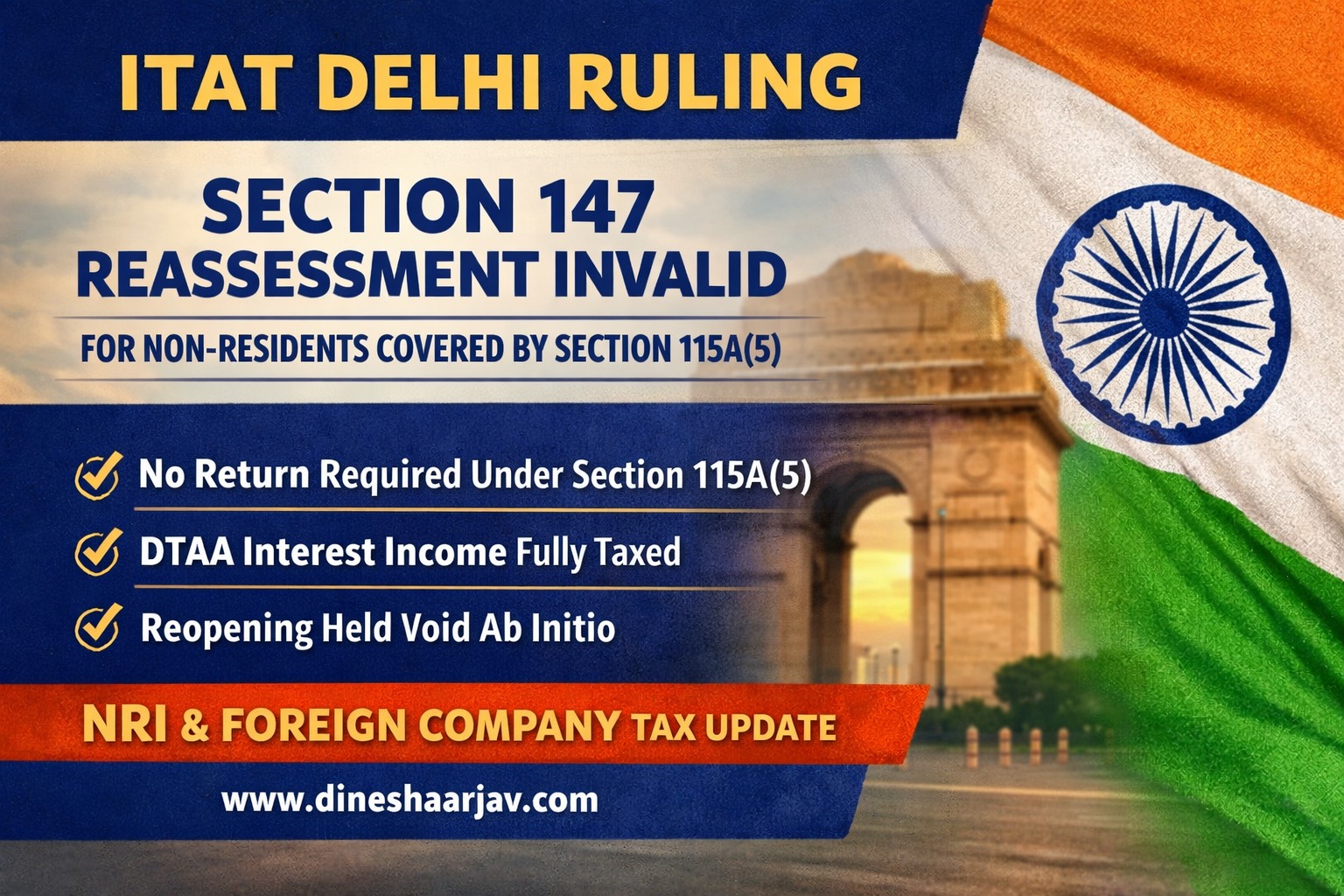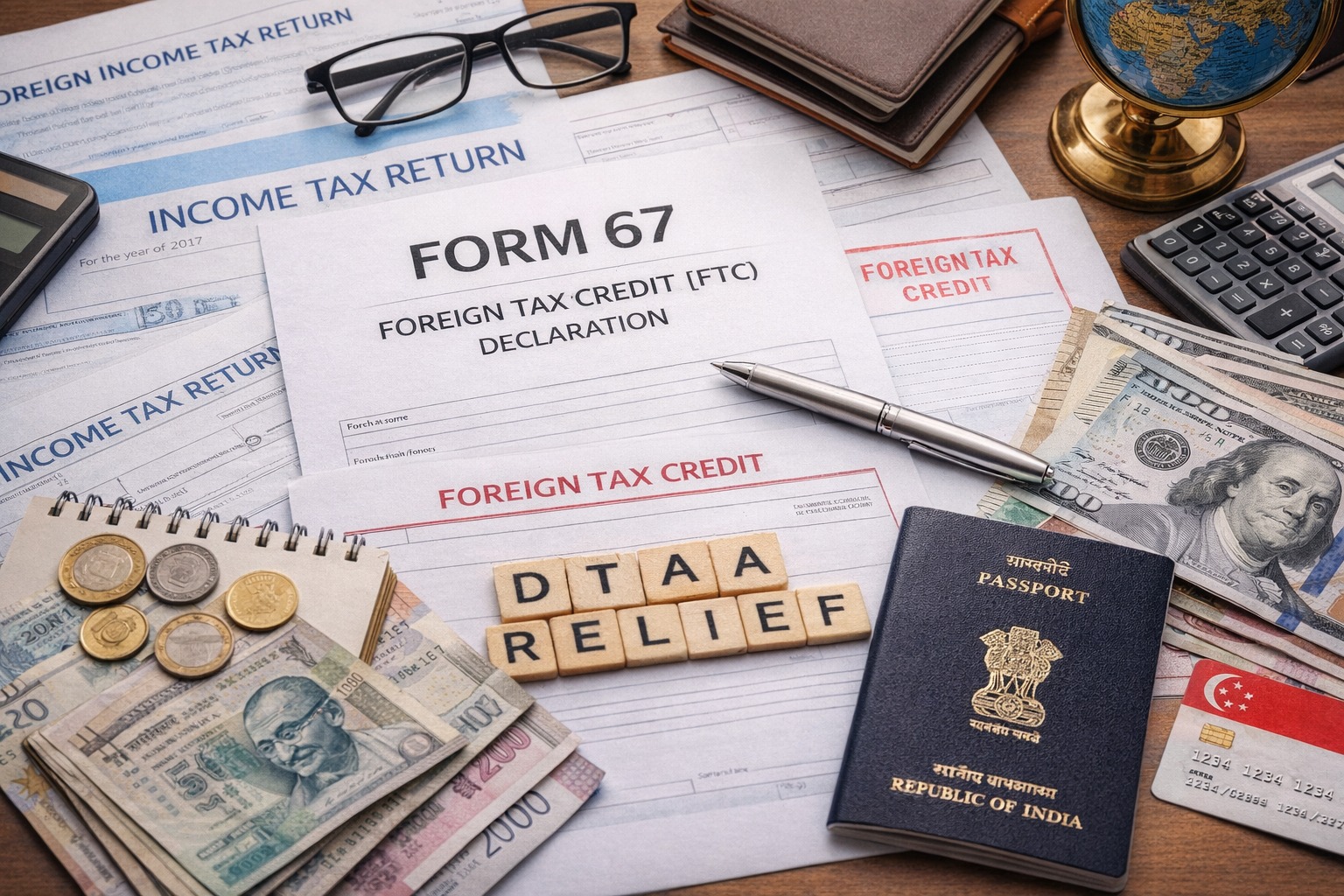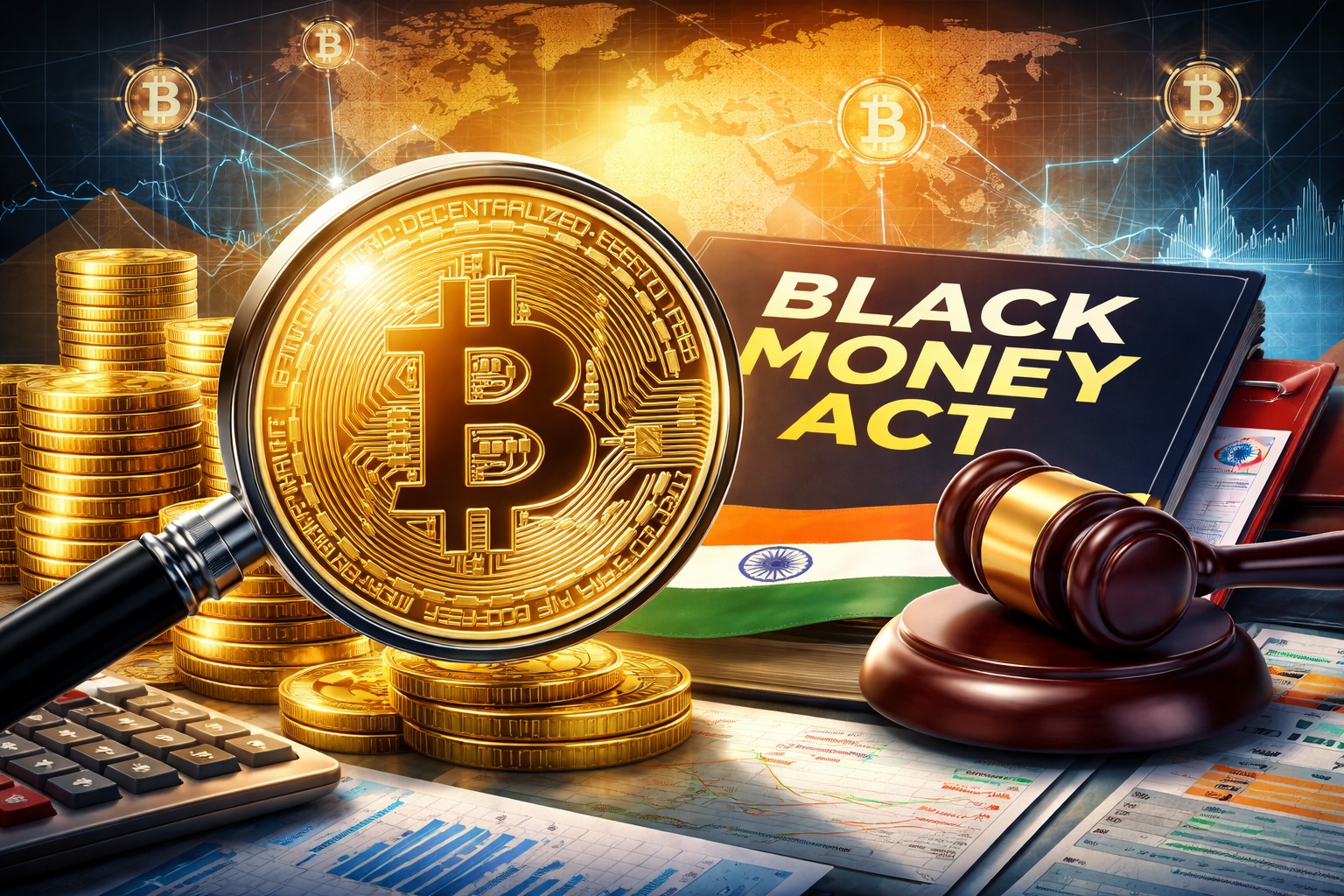 WhatsApp
WhatsApp
 Call Us
Call Us
 Email Us
Email Us
 Whatsapp Community
Whatsapp Community

In a landmark judgment that could reshape the digital asset ecosystem in India, the Madras High Court has officially recognised cryptocurrency as “property” under Indian law. The ruling, delivered in Rhutikumari v. Zanmai Labs Pvt Ltd (2025), marks the first judicial pronouncement in India to explicitly grant property status to crypto assets.
For millions of Indian investors, NRIs, exchanges, and fintech companies, this ruling brings long-awaited legal clarity, stronger protections, and a more transparent regulatory landscape. At Dinesh Aarjav & Associates (DAA), we help clients across India, the US, UK, Singapore, UAE, and Australia navigate evolving crypto, NRI, and cross-border tax laws. This update is crucial for anyone dealing with digital assets in India or involved in India-Singapore crypto disputes.
The Court held that cryptocurrency is not currency, nor a mere speculative instrument — but a form of intangible movable property that can be:
This gives crypto holders property rights, not just contractual rights — transforming the legal landscape entirely.
The case arose from the WazirX cyberattack (July 2024) where over USD 230 million in ERC-20 tokens were compromised. Following the breach:
The petitioner argued that her XRP tokens (not affected by the hack) were about to be reallocated without consent — violating her proprietary rights.
Zanmai Labs argued:
The Madras High Court disagreed — and this is where the judgment becomes historic.
1. Cryptocurrency Is “Property” Under Indian Law
This is the most significant takeaway.
The Court held that crypto is intangible property capable of ownership and trust creation, aligning with:
This places India firmly within global crypto jurisprudence standards.
2. Crypto Held on an Exchange = Asset Situated in India
This allows Indian courts to exercise jurisdiction in disputes involving:
Even when foreign entities (like Binance or foreign holding companies) are involved.
3. Exchanges Have Fiduciary Duties to Users
The Court ruled that exchanges function as custodians, making them responsible for:
This ruling could reshape how exchanges maintain cold wallets, reserves, and user protection mechanisms.
4. Freeze on Operations ≠ Right to Reallocate User Holdings
Exchanges cannot use restructuring or insolvency strategies to pool user assets unless explicitly consented.
The Court ordered:
This emphasises investor-first enforcement in India.
1. Stronger Consumer and Investor Protection
Crypto may now qualify as “goods” under the Consumer Protection Act.
This allows complaints for:
Investors can now pursue both product liability and service deficiency claims.
2. Digital Assets Are Protected During Exchange Insolvency
Under Section 36 of the Insolvency and Bankruptcy Code (IBC):
Insolvency estate cannot include “property held in trust.”
Crypto held by users is now insulated from being treated as exchange assets.
This is a game-changer for investors on any Indian exchange.
3. Possibility of Crypto-Backed Lending & Finance in India
By recognising crypto as property, India opens the doors for:
Banks and NBFCs may now consider regulated structures around digital assets.
4. Higher Governance Standards for Exchanges
This ruling will likely push for:
India may also move toward regulations similar to Singapore’s PSA or the UK FCA’s rulebook.
At Dinesh Aarjav & Associates, we regularly assist NRIs investing in India, holding crypto abroad, or trading on global exchanges, especially in matters related to NRI taxation. This ruling impacts NRIs in several ways.:
If you are an NRI holding crypto through WazirX, CoinDCX, CoinSwitch, or international exchanges, this ruling is directly relevant for your compliance strategy.
The Madras High Court’s judgment sets a powerful precedent — for the first time, crypto assets are treated as property with full-fledged ownership rights, aligning India with global digital asset jurisprudence.
This decision improves:
As India continues shaping its crypto regulatory landscape, this ruling brings the clarity that investors and NRIs have long needed.
At Dinesh Aarjav & Associates, we specialise in:






